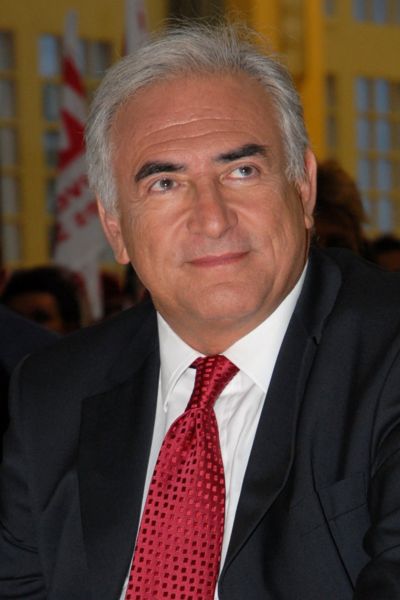Finance ministers and central bankers on Saturday called for the International Monetary Fund (IMF) to take a closer look at the conflict over currencies and growing imbalances between wealthy and emerging world powers, dpa reported.
But the IMF was not given a more concrete role in actively monitoring the value of exchange rates, something the United States had called for as it raises pressure on China and other emerging powers to allow their currencies to appreciate.
IMF Managing Director Dominique Strauss-Kahn also said governments were close to reaching a long-sought deal on how to reform the IMF's voting structure - a key demand of poorer countries.
A package deal that would give emerging and developing countries more influence in the IMF was "a small number of weeks," or even days away. Strauss-Kahn was to report back by the end of this month.
The meeting of the IMF's Monetary and Financial Committee came against the backdrop of an increasingly uneven global recovery from the recession. Emerging and developing powers have made a strong exit from the crisis, while wealthier countries are battling sluggish growth, high unemployment and skyrocketing budget deficits.
The United States, Europe and China had sparred on exchange rates ahead of the IMF gathering. The US and Europe said their recoveries were threatened by emerging powers like China, which were gaining an unfair trade advantage by holding down the value of their currencies.
In a statement following a meeting of the IMF's steering committee, ministers warned of "tensions and vulnerabilities" in the global economy because of "widening global imbalances, continued volatile capital flows (and) exchange rate movements."
The IMF should "deepen its work in these areas, including in-depth studies to help increase the effectiveness of policies to manage capital flows," the statement said.
Egyptian Finance Minister Youssef Boutros-Ghali, who chaired the IMF committee meeting, suggested governments had not been able to put aside their differences on exchange rates, but all had at least pledged to reach a common solution.
"There are a number of points of friction," Boutros-Ghali said. "We have come all to the conclusion that the IMF is the place to deal with these issues."
US Treasury Secretary Timothy Geithner said ahead of the meeting that the IMF should "strengthen its surveillance of exchange-rate policies" in a bid to put more pressure on China and other emerging powers.
China had rejected calls for a faster appreciation of the yuan. The country's central bank head, Zhou Xiaohuan, said Friday that a "shock therapy" approach to the Chinese currency would be dangerous, but he promised a gradual rise.
The dispute has prompted some fears of a tit-for-tat series of devaluations or other protectionist actions by the world's major powers.
The IMF this week backed the US and Europe in calling for a revaluation of emerging market currencies in favour of wealthier countries. But Strauss-Kahn sought to play down the dispute, saying it fell into the broader issue of "rebalancing" the global economy.
The IMF was already tasked last year with ensuring that the world's largest countries were not engaging in policies that threatened the stability of the global economy. Strauss-Kahn said the increasing "noise on currency" meant the IMF would have to "speed up" its work on the issue.
Ministers ask IMF to deepen role on currencies, imbalances
Finance ministers and central bankers on Saturday called for the International Monetary Fund (IMF) to take a closer look at the conflict over currencies and growing imbalances between wealthy and emerging world powers, dpa reported.






